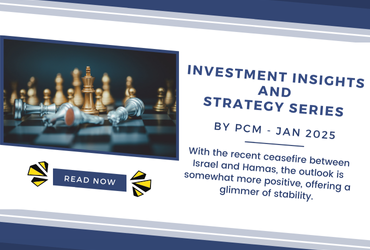Do you ever find your finances are in a constant state of change? One minute you are juggling with repaying your education loans and the next minute you are planning to get married, buying a house and considering how many children you would like to have. All of these require money.
Not only do financial markets fluctuate, your financial needs also change over time. Life is full of changes and with each new set of circumstances comes new financial needs. Luckily, it’s easier to predict the changes in your financial life stages than it is to predict the direction of the markets.
Whether you have just started your career, or jostling with family planning or preparing for retirement, this article is for you! Knowing what financial milestones are ahead of you and planning in advance will help you establish a greater level of financial security and provide you with more financial choices.
Your 20s to 30s – Starting out in your career
At the start of your working life, you’d likely be excited as you have a stream of income now, and no longer need to beg your parents for allowance. You might even find yourself spending luxuriously on the things you’ve always wanted, like a new outfit or a new phone. “Nah that’s not me,” you might say. But you’d be surprised to know that 40% of millennials spend beyond their means and 47% of Malaysian youths have high credit card debts, according to statistics from Bank Negara Malaysia recently. So you should never be too careful about not falling into this category.
Instead of spending overboard, this is a good time to lay a strong foundation financially and plan ahead because you have the least commitment in this stage of life. With a relatively longer investment horizon, you are better able to ride out short-term fluctuations in the market. However, you should also know your limits and only invest in products that suit your risk appetite.
Moreover, you should aim to build up your savings and set aside an emergency fund, to build up cash reserves that can sustain at least three to six months’ expenses. You can start by saving at least 10% to 20% of your income every month. This will help protect you from financial shocks like a sudden job loss.
Everyone is talking about insurance these days. Should you get yourself insured too? Yes, you should get some basic life and health insurance while your premiums are low. If you have dependants, it’s good that you consider getting term insurance to protect them, and yourself, in the event that you should pass away or become totally and permanently disabled.
After setting aside part of your salary to accumulate an emergency fund and to pay your insurance premiums, you should think about starting to invest some of your savings on a regular basis to benefit from the power of compounding.
Your 30s to 40s – Mid-career
In this phase of your life, you are most probably building a family, or already have a growing household. So, most of your financial planning will be about your children’s wellbeing and future. Do I send them for tuition, ballet, piano, or swimming classes? Should I send them to a public or private school? How much will these cost? Expenses will be high in this stage. For most of us, this stage of life spans the most number of years, starting from when you have been working for a few years to the last few years of your career.
Given your greater financial obligations at this time, it is a good idea to save more and exercise greater prudence when it comes to investing as you don’t want to expose yourself to the risk of suddenly finding yourself not being able to see to your dependants’ needs.
So, before getting an expensive dream house, or splashing on a dream car, you should frame your financial decisions after assessing your family’s needs and revisiting your financial goals. This is so that you can build enough financial reserves to safeguard your and your family’s financial wellbeing. Always time and again review whether your emergency fund is sufficient to cover your expanded family’s expenses. You may need to top up on your emergency cash savings especially to cater to new commitments, such as a new house or an additional child.
Once you have laid strong financial foundations and settled on a stable budget, it’s time to capitalise on your peaking earning power. You may by now have the capacity to set aside more for investments. With your financial bases covered, you’ll have greater latitude to seek to maximise your investment returns based on your risk appetite.
Your 40s to 50s – Preparing for retirement
By your forties, you will probably be hitting peak earnings and enjoying a better quality of life than ever before. Does that mean it’s time for you to upgrade your lifestyle?
The answer lies within your own careful consideration. As there may still be many other competing priorities in life that you hope to fulfil such as your children’s tertiary education needs, your parents’ financial needs as well as their wellbeing and not forgetting, your own personal retirement plans. All these require your attention and mandate you to manage and plan your finances wisely.
At this point, where your investment horizon gets shorter, you may want to preserve what you have saved by shifting more of your investments into those that are less risky. You may also consider investing in products that can generate a regular stream of income for you.
Essentially, you should prepare ahead by setting aside a budget for your dependants’ needs and your own retirement needs. You should work out how much you’ll need for your children’s tertiary education, parent’s long-term care and desired lifestyle when you retire. Among products you could consider to finance these goals are Private Retirement Scheme (PRS) and Exchange Traded Funds (ETF).
50s and beyond – Retiring well
Once you retire, does it mean you would have to live off your savings only? Will that be enough? The hard truth is, more often than not, it will not be enough although it is everyone’s wish that we should be self-sufficient by then. So how do we do this? Ideally, your home should be paid up and you have an adequate retirement income stream. If not, the realistic thing is to have to continue working a few more years. At this stage, you should consider lower risk investments that can generate a regular income for you and are easy to liquidate, such as Money Market Funds and Fixed Income Funds.
While in retirement, you should still spend your retirement funds sensibly. You certainly do not want to retire while still having to contend with paying loans monthly. Try your best to pay up all your loans before you retire, so you do not have to worry about having loans to pay.
In summary, generally, people save and invest to meet certain needs at various points in their lives. Suffice it to say, before you invest, you should have a clear idea of your goals and risk tolerance. These can, and often do, change over the course of your life, so you should review them regularly. There are, broadly speaking, the four major life stages for all of us. Every phase brings different goals and priorities that require a different investment approach. Invest well and may you meet all the financial goals and objectives that you have set for yourself and your family.
*The above stages are simplified. Each person is unique with their own story, but this provides a guide to help you gauge and start your financial planning.







